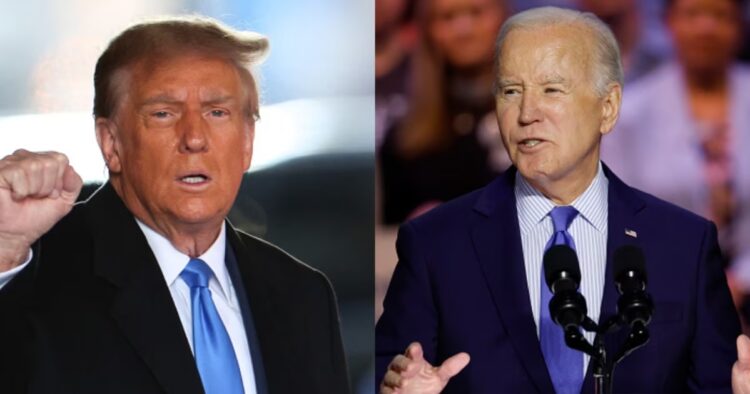In the Michigan primaries held on Tuesday, both President Joe Biden and former President Donald Trump emerged victorious, setting the stage for a highly anticipated rematch between the two political heavyweights.
Biden clinched the Democratic primary victory by defeating his significant opponent, Minnesota Rep. Dean Phillips. However, Democrats were also closely monitoring the results of the “uncommitted” vote, as Michigan has become a focal point for dissatisfied members of Biden’s coalition that propelled him to victory in the state and nationally in 2020. The number of “uncommitted” votes has surpassed the margin by which Trump won Michigan in 2016, exceeding the organizers’ goal of protest effort this year.
Trump secured his victory in the Republican primary over his last major challenger, former U.N. Ambassador Nikki Haley, adding to his wins in the first five states on the Republican primary calendar. The Trump campaign aims to secure the 1,215 delegates needed to clinch the Republican nomination sometime in mid-March.
Both campaigns are closely analyzing Tuesday’s results beyond mere victories. For Biden, a significant number of voters choosing “uncommitted” could signal trouble within his Democratic base in a crucial state for November. Meanwhile, Trump faces challenges with suburban voters and those with a college degree, as well as dissent within his party regarding potential legal issues.
Biden has already secured wins in South Carolina, Nevada, and New Hampshire. Notably, his victory in New Hampshire came through a write-in campaign as he did not formally appear on the ballot, due to the state breaking national party rules by scheduling its primary before South Carolina’s.
Both the White House and Biden campaign officials have recently visited Michigan to engage with community leaders regarding the Israel-Hamas conflict and Biden’s approach to the issue. However, these efforts have not deterred leaders and organizers of the “uncommitted” movement.
The robust grassroots effort advocating for “uncommitted” votes as a means to express objections to Biden’s handling of the Israel-Gaza conflict has presented Biden with a significant political challenge in the early contests. This push has garnered support from officials such as Democratic Rep. Rashida Tlaib and former Rep. Andy Levin.
Our Revolution, an organizing group once tied to Sen. Bernie Sanders, also urged progressive voters to choose “uncommitted,” emphasizing the potential impact on Biden’s stance on Gaza.
Trump’s dominance in the early states has been notable, earning support from various segments of the Republican voting base, including evangelicals, conservatives, and rural voters. Despite skepticism from some senior figures in the Republican Party, alignment behind Trump is increasingly evident.
However, Haley remains steadfast in her campaign, despite Trump’s tightening grip on the GOP. She has continued to garner support from a significant portion of Republican primary voters and has even outpaced Trump’s primary campaign committee in fundraising.
While Trump faces mounting legal challenges, Biden has focused on bolstering his campaign’s financial reserves. The Biden campaign, along with the Democratic National Committee, announced record-breaking fundraising figures for January.
As the November election approaches, both Biden and Trump navigate internal and external challenges. Trump’s legal troubles loom over his campaign, with his first criminal trial scheduled to begin in March. Meanwhile, Biden seeks to maintain momentum and address concerns within his party base ahead of the general election.

















Comments